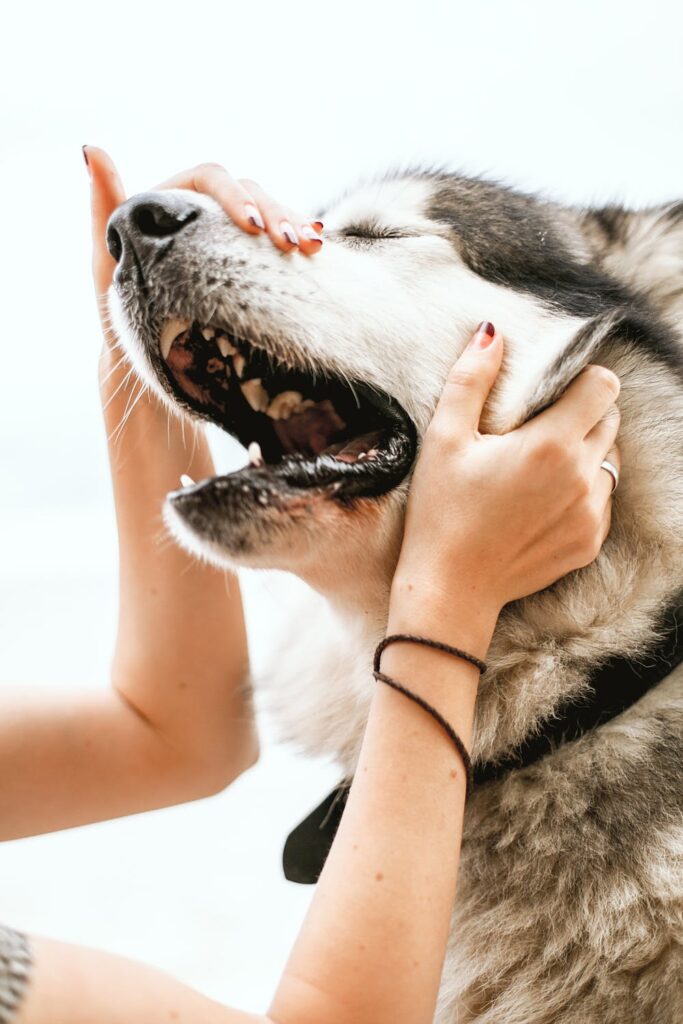
Panting is a normal way for dogs to cool themselves down, but if your dog is panting excessively or seems restless, it could be a sign of something more serious. Here are some of the most common reasons why your dog might be panting and restless:
Heat stroke
If your dog is panting heavily and seems restless, it could be a sign of heat stroke. This is a serious condition that can be fatal if not treated immediately. Symptoms of heat stroke include:
- Heavy panting
- Bright red gums
- Rapid heartbeat
- Difficulty breathing
- Vomiting or diarrhea
- Loss of consciousness
If you think your dog might be suffering from heat stroke, it is important to act quickly. Take your dog to a cool, shady spot and give them plenty of fresh, cool water. You can also try to sponge them down with cool water. If your dog is not responding to these measures, you should take them to the vet immediately.
Anxiety
Dogs can experience anxiety for a variety of reasons, such as loud noises, separation anxiety, or travel. Symptoms of anxiety in dogs can include:
- Panting
- Restlessness
- Shaking
- Whining
- Excessive barking
- Urinating or defecating in the house
If you think your dog might be suffering from anxiety, there are a few things you can do to help them. First, try to identify the source of their anxiety and remove it if possible. For example, if your dog is anxious about loud noises, you could try to desensitize them to these noises by playing them at a low volume and gradually increasing the volume over time. You can also try to provide your dog with a safe place to retreat to when they are feeling anxious, such as a crate or a quiet room.

Pain
If your dog is in pain, it may pant and be restless as a way to cope with the discomfort. Pain can be caused by a variety of things, such as injuries, illnesses, or dental problems. If you think your dog might be in pain, it is important to take them to the vet to get a diagnosis and treatment.
Medical conditions
There are a number of medical conditions that can cause panting and restlessness in dogs, such as:
- Heart disease
- Liver disease
- Kidney disease
- Diabetes
- Bloat
If your dog has any of these conditions, they may pant and be restless as a symptom of their illness. It is important to take your dog to the vet if you notice any of these symptoms so that they can be properly diagnosed and treated.
Medications
Some medications can cause panting and restlessness as a side effect. If your dog has recently started taking a new medication, this could be the cause of their symptoms. If you are concerned about your dog’s panting and restlessness, it is important to talk to your vet about the medications they are taking.
If you are concerned about your dog’s panting and restlessness, it is important to take them to the vet to rule out any medical causes. Once any medical problems have been addressed, you can then work with your vet to develop a plan to manage your dog’s anxiety or other behavioral issues.
Here are some additional things you can do to help your dog if they are panting and restless:
- Make sure they have access to fresh, cool water.
- Provide them with a shady spot to rest.
- Gently massage their chest and abdomen.
- Talk to them in a calm voice.
- If your dog is anxious, try to identify and remove the source of their anxiety.
- If your dog is in pain, give them medication as prescribed by your vet.
With your help, your dog should be able to feel better soon.
Additional tips for preventing panting and restlessness in dogs:
- Keep your dog cool in hot weather.
- Avoid exercising your dog in hot weather.
- Make sure your dog has plenty of shade to rest in.
- Monitor your dog’s activity level and adjust it as needed.
- Provide your dog with a safe and comfortable place to relax.
- Train your dog to relax on command.
- If your dog is anxious, work with a behaviorist to develop a treatment plan.
By following these tips, you can help keep your dog cool, calm, and comfortable.